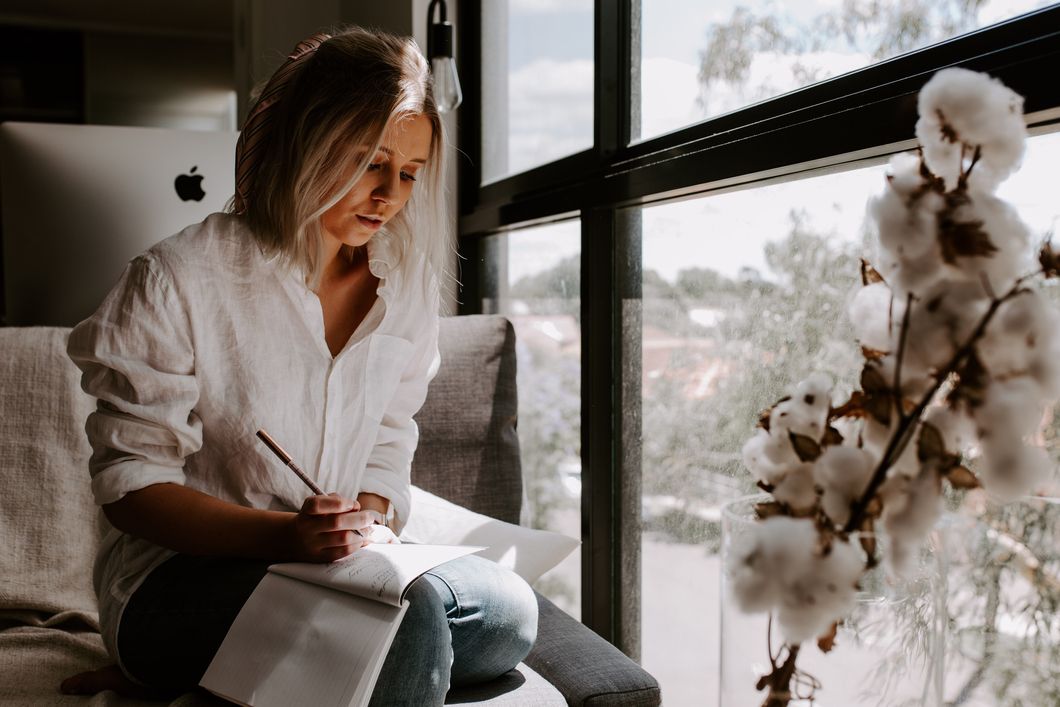I must've been five or so years old, sitting on a piece of playground equipment at my South African preparatory school when I began singing.
In those days my family was really involved in "the ministry," which meant we were at Church five or six days a week and I got to hear a lot of worship music and rehearsals. From an early age, I saw how producing free verse could be used to convey gratitude, desperation, and hope.
On that playground, I crafted my first song. You could say I was going through the five-year old's equivalent to an emo stage, crafting words about not fitting in and trying to stop crying. I was upset, coming to the realization that my life was never going to be as simple as the other kids. I was behind in school, I had moved from the Netherlands not so long ago, I had no family in the hemisphere, and there was always an eerie feeling we were going to pack everything up and leave again for another continent (which for the record, did happen not long after this).
Once I was actually able to write (once I moved to America), I made the most of it. I had a blue manilla folder full oflyrics and 'songs that weren't supposed to be sung,' that I now can look back on as poetry. They were about God, and joy, and friends, and sometimes being sad.
When I started high school, I met someone who wrote a lot of poetry. In retrospect, he was a pretty shady guy. His poetry wasn't about happiness or admiration, but about suicidal thoughts and anxiety. I had never really confronted poetry like that. He shared a lot of disturbing work with me which had a lasting impression on me. I wasn't sure if I wanted to open myself up to this form of expression; I saw this as a corruption of what I wanted to do.
There was something so magnetic about writing, however. I found myself writing about everything, all the time, in Google Docs documents, on my Notes app, in voice recordings while driving, and yes, on paper. At some point, I also had to accept that poetry was not always going to be about first loves and thankfulness. Sometimes, life sucks. Sometimes, it hurts. That's precisely why I had to write about it.
It's through this that I learned that writing is less about perfecting what exists (emotions, for example), but rather, bringing ideas into the real world. Ideas didn't have to be neat. They didn't always have to make sense. Shaping them with words did show me, though, that they were valid. This feeling of validity, in turn, showed me that I could actually execute on my abstract thoughts if I brought them into the tangible world through my words.
How did I reach this realization? By following three rules without exception.
- If I see a vision in my head (whether that be feelings, things I want to accomplish, or a to-do list), write it down immediately. As I referenced earlier, this sometimes meant yelling 'Hey Siri, start a notes document' in the car to get it down on 'paper.' Sometimes I'd look back at those documents and think 'What the heck was I on?' and other times I'd look at it and find it really profound, especially when it came to prose.
- Share your work with someone (even a stranger). This includes artistic work but also perhaps professional things you're really proud of: a fancy excel sheet, a homeless shelter you volunteer at, or in my case, a poem I wrote. This doesn't mean parade everything you create, but sometimes it's essential to confide your work into a person. This reinforces the validity of your feelings or thoughts about the matter. Sometimes we get caught up thinking what we're experiencing, especially emotionally, is abnormal or irrational, or that someone will judge us, but sharing it proves that this hardly ever happens. The best decision I ever made for my writing career was beginning a social media account for my poetry (@poemsbyallison on Instagram) and on a Medium for my more academic stuff.
- Appreciate other's efforts to be real, and be real back. It's not easy to be vulnerable, but vulnerability can often lead to healing and advancement. Build others up like you would like to be built up for your art. Sometimes receiving is the best gift you can give.
By writing things down immediately, sharing, and supporting others I've learning to apply the same principles in any work I do.
Instead of talking about starting a Medium account and writing about religion and spirituality and faith, I just did it. I even made a publication called Interfaith Now. I executed on that first step and figured out the rest as I went along. I followed my emotions and desires within the framework of self-appointed rules.
When you train your heart to share your convictions with others, those convictions become tangible. That's what things actually fall into place because at least now, they have edges.
Although many life experiences have contributed to my understanding of these principles, the act of writing poetry has, by far, helped me become more productive by beginning that first step and understanding that it doesn't have to be perfect the first time around.
Poetry has made me a better, more productive individual.
















